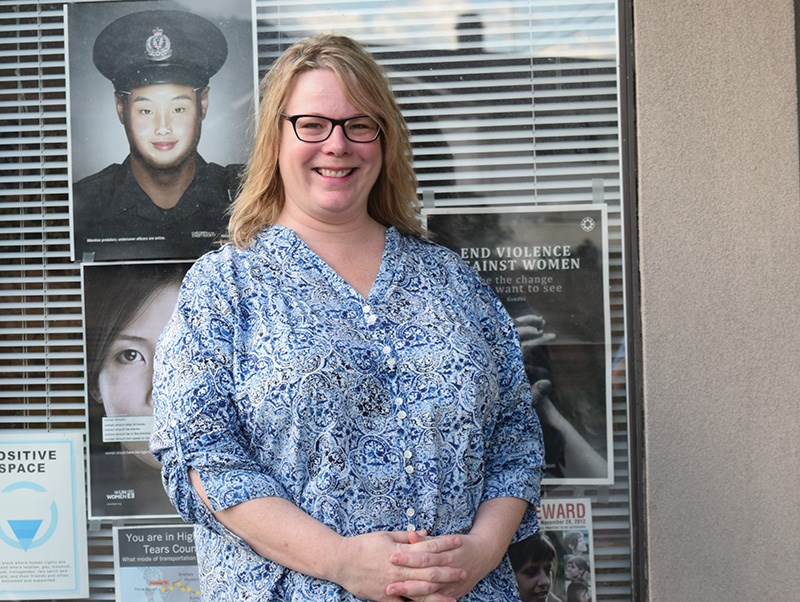The Sea to Sky Corridor now has an advocate for sexual assault services.
Shannon Cooley Herdman started in September as the coordinator and advocate for sexual assault response and prevention through the Howe Sound Women’s Centre.
Her main task is to advocate for services to help women who experience sexual violence.
“We would like to make it easier on victims by having them be able to get access to services in their home community,” she said.
Herdman isn’t new to the issue. She has been a women’s advocate for decades and co-founded the Violence Against Women In Relationships regional committee in about 2010 to encourage the health authority to enhance their sexual assault services.
She wants not just the rape kits (forensic sexual assault exams) that many have been also advocating for in the corridor, but comprehensive services.
“That will include counselling, victim support, victim support in terms of guidance through the criminal justice system,” she said. Some of those pieces are in the corridor, but could be more connected and fulsome, she said.
In a large urban centre, such as Vancouver, if a woman is raped and goes to the emergency room, a sexual assault services team is on call and mobilizes to support her – “including a victim support worker from specialized victim services,” Herdman said. “They run through her options, everything from basic medical care to counselling to the realities of pursuing criminal justice, so she is able to make an informed decision.”
A woman can also be connected with long-term service options such as further counselling and if she choses to pursue criminal justice, she will be guided through with support.
In Squamish if a woman goes to the hospital’s emergency department, she is offered basic sexual assault services such as immediate physical care, tests for sexually transmitted infections and Plan B, a drug to end a possible pregnancy from the assault. If the woman wants to pursue charges, she has to get transported to Vancouver General Hospital.
“Sometimes, unfortunately, women are dropped off, don’t have a way back,” said Herdman. “I can only imagine that it is a very scary, isolating experience and again, no wonder women want to put [the assault] past them and not even look at pursuing the perpetrator.”
Herdman said she could not divulge corridor statistics on the number of sexual assaults, but said 2009 statistics showed three times as many women were assaulted in the Sea to Sky Corridor than in Richmond and the North Shore.
She said she could only speculate on why the numbers are higher here.
“Perpetrators target vulnerable women and that may be transient women… women are more likely to experience sexualized violence under age 24, so we are a youthful population here,” she said, speculating on just a couple of the reasons for the higher statistics in the corridor.
She said while the push for sexual assault services in the corridor has been ongoing for years, there currently seems to be more momentum.
“There is a community recognition that this is an area of social justice that needs to be ripped out of the closet,” she said.
While 89 to 94 per cent of sexualized violence is perpetrated against females, according to Herdman, men can be victims of such violence as well.
“One of the goals of my project is to collect regional statistics, and I am in the process of approaching a variety of venues for assistance with this,” she said.
Herdman’s position is funded by a grant from the Canadian Women’s Foundation.



